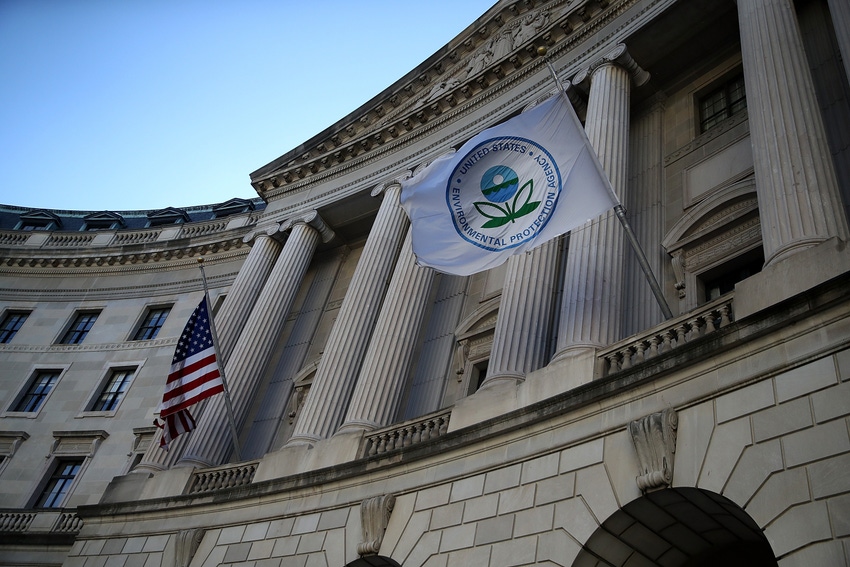
In August 2019, EPA granted 31 extension petitions for the 2018 compliance year, covering 1.43 billion gallons of renewable fuel, or about 7.4% of the total amount of renewable fuel required to be used nationally in 2018. Growth Energy, Renewable Fuels Association, National Corn Growers Association, National Biodiesel Board, American Coalition for Ethanol, and National Farmers Union filed a brief challenging that decision from their obligations to comply with the Renewable Fuel Standard in 2018.
Collectively known as the Biofuels Coalition for this case, the group submitted its filing to the D.C. Circuit Court of Appeals, arguing that EPA lacked the authority to issue such exemptions and that it acted in an arbitrary and capricious manner in attempting to do so. The EPA’s actions on SREs over several years cut biofuels demand by 4 billion gallons and reduced demand for corn by 1.4 billion bushels.
In its brief, the Coalition asserts some of the same arguments that the Renewable Fuels Association, NCGA, NFU, and ACE successfully made in the Tenth Circuit Court of Appeals against three small refinery exemptions, including the fact that EPA lacked the authority to extend small refinery exemptions that had lapsed in earlier years. The Coalition also took on EPA’s failure to provide its own refinery-by-refinery analysis to support a finding of a disproportionate economic hardship, particularly in the 20 instances where EPA decided to grant a full exemption despite the Department of Energy recommending that only a partial exemption be granted.
In addition, the Biofuels Coalition posed the same question on which the Tenth Circuit found EPA inexcusably silent: If all RFS compliance costs are ultimately passed through to end users and recovered, as EPA has repeatedly maintained, how is it that any small refinery can suffer a disproportionate economic hardship?
“Among all of EPA’s indefensible actions surrounding small refinery exemptions in recent years, the Agency’s two-page decision to grant 31 waivers from 2018 RFS compliance really takes the cake. Enough is enough,” coalition representatives said. “The EPA had absolutely no legal basis for continuing to destroy demand for renewable fuels, which is contrary to the intent of Congress for the RFS program. When it adopted the RFS in 2005, Congress clearly intended for small refinery exemptions to be temporary in nature. Yet, 15 years later, some refiners—most of whom have readily complied with RFS obligations in the past—are trying to claim they need more time to prepare for compliance with RFS requirements. If these exemptions were meant to be a ‘bridge to compliance’, as concluded by the courts, it should be obvious that we all crossed that bridge many years ago.”
In prior years, EPA would respond separately to each small refinery exemption petition with several pages of analysis on the individual refinery’s unique circumstances. However, for the 2018 exemptions, EPA announced its decisions on more than three dozen refinery petitions in a single, two-page memorandum issued by Acting Assistant Administrator Anne Idsal. That brevity alone reflects EPA’s reflexive reaction to exempt oil interests from compliance whenever they asked without justification.
The Trump Administration’s EPA has been widely criticized by biofuel industry leaders as the SREs have increased nearly four-fold, and not a single request for an exemption has been denied. EPA gave out 54 exemptions from 2016 and 2017 compliance, reducing RFS blending requirements by 2.6 billion gallons. The 2016 and 2017 exemptions led to a reduction in both the volume of ethanol consumed and the ethanol blend rate in 2018 — the first annual decline in either measure of ethanol demand in at least 20 years.
EPA granted 19 petitions for 2016, 35 petitions for 2017, and 31 petitions for 2018. The corresponding exempted volume of renewable fuel jumped from 190 million gallons for compliance year 2013, to 790 million gallons for 2016, 1.8 billion gallons for 2017, and 1.4 billion gallons for 2018.
In mid-September EPA did deny petitions for many SREs, including the “gap-filling” petitions for 2011-18 compliance years. In total, the agency had received 68 retroactive exemption requests from petroleum refiners seeking to skirt obligations under the RFS. Since March 2020, 17 small refineries in 14 states in seven federal judicial circuits had submitted 68 individual petitions asking EPA either to reconsider exemption denials or grant exemptions for prior years in which the refineries had sought them.
On Dec. 1 Growth Energy submitted a notice of intent to sue letter to the Environmental Protection Agency (EPA) regarding its failure to fulfill its statutory obligation to issue the 2021 Renewable Volume Obligation by November 30th, 2020, an annual deadline set by the Renewable Fuel Standard. The notice gives EPA 60 days to issue the 2021 RVO before risking a lawsuit in federal court.
In related news, the Department of Justice recommended aginst Supreme Court review of the Tenth Circuit Court’s ruling earlier this year that invalidated several small refinery exemptions issued by EPA under the RFS. The DOJ filing is in response to a petition submitted in September by HollyFrontier Corporation and CVR Energy, in which the oil refiners ask the Supreme Court to review the Tenth Circuit’s January decision.
The petitioners in the original Tenth Circuit Court challenge—RFA, NCGA, NFU, and ACE—welcomed the government’s brief opposing Supreme Court review of the appeals court decision. RFA, NCGA, NFU and ACE plan to file their own brief with the Supreme Court echoing the points raised by DOJ and adding others in opposing review of the Tenth Circuit’s decision.
About the Author(s)
You May Also Like






